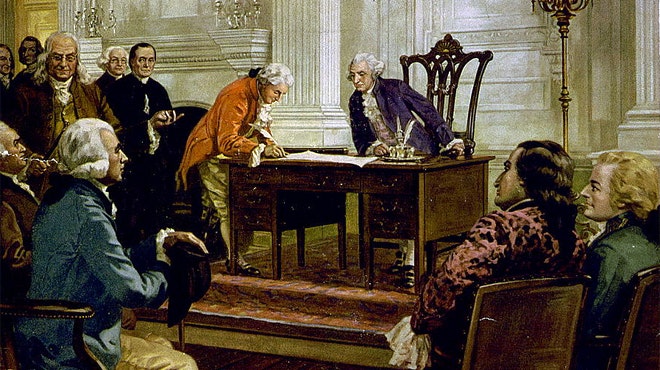On September 19, 1796, President George Washington delivered his Farewell Address, marking a significant moment in American history as he approached the end of his second term in office. This address was not just a simple farewell but a heartfelt reflection on the values and challenges that confronted the fledgling nation. Washington, often referred to as the “father of his country,” took this opportunity to celebrate the young republic, while simultaneously issuing a prophetic warning about the dangers posed by political factions and regional divisions. His remarks, which were initially published in the American Daily Advertiser in Philadelphia, conveyed both gratitude and concern for the nation he had helped to forge during the Revolutionary War.
Washington, whose leadership during the American Revolution was instrumental in achieving independence, understood the profound significance of unity among the states. In his address, he acknowledged the “debt of gratitude” he owed to his country, reflecting on the honors it conferred upon him. However, he also recognized the rising tide of political parties that were beginning to fracture the bonds of unity. As he contemplated the conclusion of his political career, he expressed deep concern about how party divisions could undermine the hard-won cohesion that had been so vital to the survival of the new nation. “One of the expedients of party to acquire influence within particular districts is to misrepresent the opinions and aims of other districts,” Washington cautioned, highlighting how such tactics could alienate citizens from one another.
Furthermore, Washington articulated his worries about the related dangers of revenge-driven partisanship. He described the “alternate domination of one faction over another” as a form of despotism that could lead to horrific consequences, mirroring historical conflicts that had marred societies in different ages and countries. By bringing attention to these issues in his farewell address, Washington aimed to awaken a sense of collective responsibility among his fellow citizens to maintain unity. He urged them to cherish the identity of “American,” which transcended local affiliations and was crucial for nurturing a spirit of patriotism.
As he prepared to relinquish his powerful position, Washington made the historic decision not to seek a third term, thereby instilling a crucial precedent for future leaders. This choice exemplified his commitment to the principles of democracy and the rotation of power, contrasting with many leaders throughout history who clung to power for extended periods. The voluntary relinquishment of power laid the groundwork for a two-term tradition that would later be codified in the 22nd Amendment after Franklin D. Roosevelt’s unprecedented four terms in office.
Washington’s Farewell Address also coincided with significant political shifts in the young nation’s landscape. In the wake of his presidency, political factions began to coalesce more distinctly, leading to a division between the Federalists, led by John Adams, and the Democratic-Republicans, spearheaded by Thomas Jefferson. Washington’s warnings were indeed prescient; just two months after his farewell address, Adams won the presidential election against Jefferson, further solidifying the environment of partisan rivalry he had cautioned against.
In his parting words, Washington underscored the uniqueness of the American identity and its importance to the nation’s continuity. He proclaimed that the appellation of “American” should inspire pride greater than any local allegiance, emphasizing that national unity was paramount for the country’s survival in a world rife with external threats and internal discord. This sentiment is echoed in the records kept at Mount Vernon, where scholars note that Washington’s message remains relevant today, addressing the enduring challenges of partisanship and the importance of national unity.
Today, Washington’s Farewell Address continues to hold significant weight in American political discourse and is recited annually in the United States Senate, a tradition that dates back to the Civil War. As a critical founding document, his words resonate with contemporary concerns about division, emphasizing the importance of cohesion and harmony within the nation. Washington’s foresight and wisdom, encapsulated in this address, serve as a guiding light for bridging divides and fostering a resilient American spirit.



